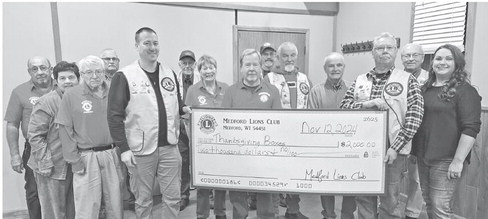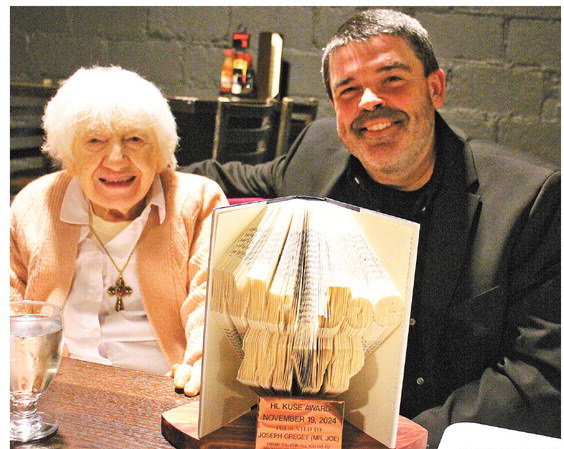Restaurant owners feeling pinch due to COVID-19 shut down
It is estimated by the Wisconsin Restaurant Association that there has been a 60% reduction in sales for the average restaurant since the Stay-At-Home orders were put in place. The newly enforced hours and pick-up only restrictions has mowed many restaurant owners’ income down into the dirt, leaving some financially strapped and worse for wear.
“I’m not doing that good, I don’t have an income anymore,” said Linda Pittman, owner of Northside Cafe in Rib Lake. “Our gross salary has gone down by at least $15,000. I’m barely making it, this is the time where we’re making five or six thousand a week, now we are barely making $1,000.”
Pittman found the Small Business Administration (SBA) to be unhelpful, as she has been unable to obtain any financial aid through their COVID-19 disaster relief fund, and her finances are getting down to the wire.
“I applied for two loans, the same one twice, and have heard absolutely nothing. I have called, and called, and called, and they don’t talk to me,” she said, agitated by the lack of communication from the SBA. “I’m to the point where I just want to shut it down and go get a job.”
Like most restaurants, Northside Cafe has been reduced down to take-out only orders, which Pittman said comes nowhere near enough to reasonably sustain the business.
“It doesn’t go very well. People around here don’t want to do to-go orders, they want to come dine-in and eat... With the [paltry amount of money] I make in 13 hours or 12 hours, is it really worth me being open and turning on the grill? I don’t feel it is.”
Pittman’s struggles seem to be nearing the norm for restaurants, with all facets of the food industry hit by the shutdown.
Some restaurants have even gone to the nuclear option, enacting a preemptive shutdown of their entire business.
Grand Central Station Bar & Grill in Gilman locked their doors one month ago, on April 6, and haven’t opened since then.
“I had some employees that didn’t want to work because they were afraid of catching [the coronavirus], and we weren’t making any money,” said owner Deana. “So we just decided to close, it was too slow.”
Grand Central operated on a take-out only basis for one and a half weeks, but Deana said the reduced income didn’t warrant staying open: “It sucks, hopefully we’re able to open soon.”
On the other hand, The Rail Trail Cafe in Ogema is, with all things considered, doing relatively fine in terms of stability.
“We have a lot of support from the community, so that really helps,” said owner Dawn Taylor. “So we can continue to stay open.”
Rather than being concerned about her own business, Taylor said she worries more about other local businesses.
“I feel terrible for small business that aren’t able to be open. They are pretty much supporting themselves, and with no income coming in it’s obviously pretty hard to pay the bills,” she said. “And, it’s already going to be going on seven weeks Tuesday that this all started already.”
Like many small business owners, Taylor said she hopes other businesses are allowed to adopt a one customer at a time policy to keep stores from going under.
“I wish other places could open up a bit, too. The churches, hair salons; there’s so many small businesses out there and it’s so hard on them,” she said. “A lot of these girls have salons right out of their homes and they take care of one person at a time anyhow. And [larger salons] will still benefit from having one customer rather than zero.”
Taylor said the closing of local businesses has been a hot topic issue amongst her restaurant’s customers, with many in agreement that the government’s approach to small business precautions is too overbearing, and causing an unnecessary fiscal valley for business owners.
“I still get to talk to a lot of people, and many agree that, how can these bigger box stores be open but the small businesses have to be closed?” she said. “We’re still open seven days a week so I’ll talk to people who had to go to Walmart or wherever, and the places have been packed. Why can those places be open and our little shops all over are forced to be closed? It’s really, really upsetting.”
Other establishments are able to remain stable, but were none-the-less profit-scooped by the Safer At Home orders.
“It’s definitely effected business quite a bit, es- pecially on the breakfast side,” said Medford coffee shop Uncommon Grounds’ owner Jaco van der Berg. “People’d come out and sit and socialize, they’d have breakfast in their groups and get-togethers. Now we can’t... It’s probably a 60% to 80% decrease just on the breakfast part of it.
“There are regulars that used to come in and sit down that are still coming by on their own basis and getting a cup of coffee,” said van der Berg. “That money from the community has definitely been great in supporting us, and keeping the doors open.”
Due to the income cut, van der Berg applied for the Paycheck Protection Program.
He had good luck getting through to the SBA, and within a week he received the necessary funds to support his business and employees, avoiding being forced to lay anybody off: “With that grant, I’ve been able to make sure I’ve got all my employees here and still pay them their same wages and give them their same hours.”
No matter the circumstances, all restaurants are clearly feeling the strain, with most seeing intense adverse effects. The Safer At Home orders will remain in place until at least May 26, after it had been previously extended. So long as the restrictions aren’t elongated further, the establishments hope to soon return to some reminiscence of normal.


